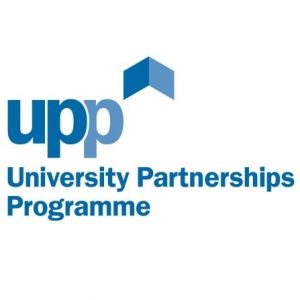UPP: A life long engagement
18 May 2015Understanding employee engagement levels is critical to achieving their key performance indicators. It turned to online surveys as a way to capture this information, which in turn has captured the imagination of its employees.
In 10 years UP P has grown into one of the UK’s leading providers of university infrastructure and residential services, today managing over 28,000 rooms across 13 locations on behalf of some of the UK’s most prestigious universities, including Exeter, Nottingham and Reading University.
P has grown into one of the UK’s leading providers of university infrastructure and residential services, today managing over 28,000 rooms across 13 locations on behalf of some of the UK’s most prestigious universities, including Exeter, Nottingham and Reading University.
UPP works in partnership with the universities to provide on-site management, cleaning, maintenance and safety for student accommodation. It also supports estate transfers where the university hands management of its properties over to UPP for long-term contract durations, up to 125 years. The company is also diversifying into the development of new functional properties for university use, including a brand new, state-of-the-art student union, nightclub, gym and sports facility for Nottingham Trent University.
UPP has witnessed rapid growth in the last decade that has seen its staff numbers swell to over 700. In addition to a diverse talent pool of employees on-site at Universities, it also has 70 staff based at its London head office. The employees here are responsible for bids and transactions, finance, HR, operations, legal and compliance, and health and safety.
Billy Sutch, Business Standards Manager at UPP, says, “Each on-site team is headed up by a business manager who is responsible for overseeing site operations including communication, learning and development, well-being and the performance of their teams. This is a big responsibility and can be challenging given the diversity of talent and skills on each site.”
“Each business manager approaches the management of their team in a different way. We really value those differences and look to encourage them to develop a way of working that suits the needs of their client, contract and staff.”
In 2010, UPP began to explore the possibility of gaining Investors in People (IiP) accreditation. As Mirka Wojnar, learning & development manager at UPP explains, “The criteria for gaining IiP accreditation gave us a framework for identifying possible changes and improvements to our engagement, development and communication processes. As part of our internal review we identified that staff engagement was critical to our future growth and success plans. A company-wide staff survey was a logical step in understanding how our staff were feeling and whether we were in a good position to support the growth of the company moving forward.”
UPP reached out to management consultancy INSPIRING Business Performance to see whether its online survey platform would be able to deliver the understanding of engagement levels that UPP required.
As Billy explains, “INSPIRING has lots of experience in delivering programmes that really understand how staff are feeling. They recommended that we undertook a staff survey and were able to advise on the questions that would capture the information we were keen to garner. Post survey INSPIRING was invaluable in analysing and interpreting the results.”
UPP undertook its first staff survey in July 2011 and has continued every year since. It uses INSPIRING’s survey platform to deliver questions direct to employees, across the business, via the internet.
Employees are given two weeks to complete the survey and UPP has been incredibly successful in obtaining high response rates, increasing each year. Using a combination of closed and free text questions, it has been able to capture some great examples of employee engagement, including employees who stated that feeling valued was as simple as being thanked at the end of each day by their manager.
The survey covers a number of key areas via 50 questions. These include well-being and company culture, learning and development, reward and recognition, engagement and communications.
Billy adds, “Each year, we use the same core questions but we refine and adapt them to capture feedback on new programmes or company changes. This way the format remains familiar and easy-to-use.”
UPP employs a number of tactics to ensure staff are aware of the survey and the benefits of completing it. In addition to emailing staff, a letter from INSPIRING is sent out with user names and passwords. Business managers receive posters to display locally and are encouraged to brief their staff on the process and the benefits. Before the survey goes live, the UPP team send out a round up of last year’s survey results and highlight actions and outcomes to all teams. Billy and Mirka send out an FAQ to help the managers handle any enquiries from their teams. Regional directors and business managers are encouraged to request any additional help for each site in advance, such as additional laptops to complete the surveys on. They have also sent the survey out in other languages such as Thai and Nepalese.
“We’re constantly amazed at the initiatives that each business manager comes up with to help employees complete the survey. We have separate workstations, schedules and even tea and biscuits set up to ensure employees have the time and access to the survey,” comments Billy. “We try to insert a level of competition and regularly send out updates on completion numbers by area and region. As an additional incentive we make a £1 donation to the Prince’s Trust, our corporate charity, for every completed survey we receive.” he adds.
UPP are gaining high levels of responses, as Mirka explains. “In year one we achieved 60% completion rates, and this has risen every year. Last year over 72% of staff completed the survey and we believe this shows our staff recognise the importance of the survey.”
The online nature of the surveys means that analysis can be undertaken quickly and efficiently. The results are used to quantify employee engagement levels, develop plans and initiatives to continue to drive improvements as well as measure past initiatives. The free text sections are often used to support the statistics and any proposals for new initiatives that are sent to the board for approval.
Billy and Mirka have developed a number of national programmes to support issues identified in the survey, including the UPP Awards that recognises employee contributions to company values and objectives and a national suggestion scheme to encourage innovation.
According to Billy the flexible nature of the e-Surveys supports the business in a variety of ways. “Since the survey is completed online, we are able to adapt it to fit our needs each year. We are also able to analyse the results much quicker than with a paper based survey.”
The results are analysed using a number of different parameters, such as length of service, location and management level, to ensure deep and meaningful results. Following the analysis, Billy and Mirka share the results with UPP company directors and travel to all regions where the results are presented and plans for new initiatives are discussed. Mirka States “The presentation demonstrates very tangibly the benefit of survey completion. We’re able to show that we recognise the challenges employees face and how we’re intending to use every opportunity to improve. Regional and site teams develop further their own action plans.”
UPP places high value on its ability to obtain employee insights garnered from the e-Surveys and in ensuring on-going improvements and plans. Billy finishes, “We’ve learned a lot over the past few years, not just in the best way to roll out the surveys, but also in what it has taught us about how employees engage with the company and its culture. The surveys also form part of our on-going strategy for people development.”
Here are some of UPP’s tips for getting the best possible response rates for staff engagement surveys:
- Four weeks before start communicating the survey. Include results on last year’s survey and resulting actions. Promote last year’s response rates if applicable and stress the importance of improving on them. Messages on Payslips are an example of innovative methods of communication
- Send more reminders two weeks before and provide FAQs for managers
- Ask if staff need additional IT support and get laptops in meeting rooms on sites to make sure people have the opportunity to complete the survey.
- Make a big fuss on the day the survey goes live, e.g.:
– Posters on notice boards.
– Letters to be handed out on the day to make sure people know its coming. - Arrange time slots for completion on site.
- Ensure Managers are working with their teams and giving updates during the survey, e.g. “Here is what’s happening in your region” or “This site is nearly at 100% now”.
- Compare response rates and generate competition between sites.
- Stress the positive impact of high response rates on the accuracy of results.
- A donation to charity for each survey completed is a great idea. Find something the people in your business are passionate about and make a big deal of it – e.g. in newsletters, thank you letters distributed to staff, etc.
- Include a prize draw entry for completed surveys.
Overall – Your survey cannot be over-communicated! Get the results out quickly and use the survey results in Board, Management and Staff meetings.






